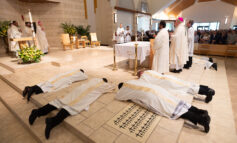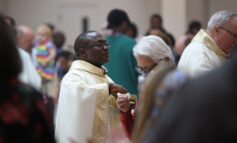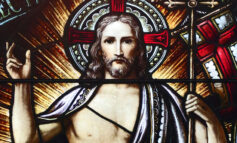By Father Thomas Esposito
Special to The Texas Catholic
The canonization of John Henry Newman, set to take place in Rome on October 13, is cause for great rejoicing among Catholics. Regarding the canonization of another Englishman in the year 1935, G.K. Chesterton remarked that Saint Thomas More “is more important at this moment than at any moment since his death, even perhaps the great moment of his dying; but he is not quite so important as he will be in about a hundred years’ time.” With that centenary quickly approaching, we do well to ponder why Chesterton may have been right about More; but it seems to me that the canonization of Newman, the face of a Catholic English renaissance that More could only dream of, highlights his immense relevance in this present moment, to say nothing of his effect in a hundred years’ time.
In this brief space, I can only focus on a single instance in which the theological legacy of Newman is still, in effect, up for grabs, with enormous consequences for the life of the Church. Cardinal Newman is widely recognized as one of the prime influences of the theologians who penned the documents of the Second Vatican Council. Perhaps his most direct contribution is evident in the dogmatic constitution Lumen Gentium; the Council’s treatment of the Church’s Magisterium, or teaching authority, contains obvious echoes of Newman’s famous book An Essay on the Development of Christian Doctrine and an article entitled “On Consulting the Faithful in Matters of Doctrine.” In the latter text, Newman outlines how the sensus fidelium, the “sense of the faithful believers” expressed in liturgy and devotion, helped steer the Church to the orthodox teaching in two specific cases: the full divinity of Christ during the fourth century Arian controversy, when the emperor and a majority of emperor-appointed lackey bishops advocated the heretical view, and the doctrine of Mary’s Immaculate Conception, which Pope Pius IX declared a dogma after verifying the devotion of the laity to this understanding of the Mother of God.
Newman’s conclusions about the sensus fidelium are sometimes employed by theologians to justify the opinion that Church doctrine can and must change if the lay faithful no longer support or practice a particular teaching. Most of the examples are drawn from the realm of morality: since a strong majority of married Catholics use artificial contraception, so the logic goes, the Magisterium’s prohibition of contraception no longer holds, and therefore the Catholic Church has already changed its teaching based on the experience and practice of the lay faithful.
Indeed, Newman declares that “the voice of tradition may in certain cases express itself, not by Councils, nor Fathers, nor Bishops, but the common sense of the faithful.” Both Lumen Gentium and Newman, however, steer clear of such a crass reduction of doctrine to a democratic vote or the mere lived experience of the faithful. The examples he gives of a healthy development of doctrine illustrate well his claims: aside from Athanasius and a few other bold bishops, the laity instinctively held firm to the teaching of the Council of Nicaea as political forces conspired to assert the heretical Arian argument about the Son’s created nature. In the 19th century, the faithful expressed the firm and constant devotion to Mary evident from previous centuries, and this devotion was ratified by the Pope, who spoke authoritatively for all of the bishops in communion with him. Authentic development of doctrine, in other words, does not involve a complete rupture with the Church’s tradition, both taught and lived.
The faithful, according to Newman, are not consulted as though they were jurors in a doctrinal trial; rather, the matter of their belief, or their consensus, is sought “as a testimony to that apostolical tradition,” such as the divinity of Christ. With regard to Mary’s sinlessness, Newman writes, harmony must exist between the teaching authority of the Pope and bishops (the Ecclesia docens) and the laity who are catechized (Ecclesia docta): “the two, the Church teaching and the Church taught, are put together, as one twofold testimony, illustrating each other, and never to be divided.”
In pondering how the lay faithful properly perceived the truth of Christ’s divinity in the face of so much episcopal confusion, Newman comes to a startling conclusion: “I argue that, unless they [the laity] had been catechized, as St. Hilary says, in the orthodox faith from the time of their baptism, they never could have had that horror, which they show, of the heterodox Arian doctrine. Their voice, then, is the voice of tradition.” I would suggest, as a way of honoring St. John Henry Newman’s insight, that we contemplate how a lack of proper catechesis in recent decades on the subject of sexual ethics led to such a divide between the Church’s teaching and the laity’s lived experience in rejecting, or being entirely ignorant of, that teaching.
Father Thomas Esposito, O.Cist., is a theologian and monk at the Cistercian Abbey of Our Lady of Dallas. His column appears occasionally in The Texas Catholic.



